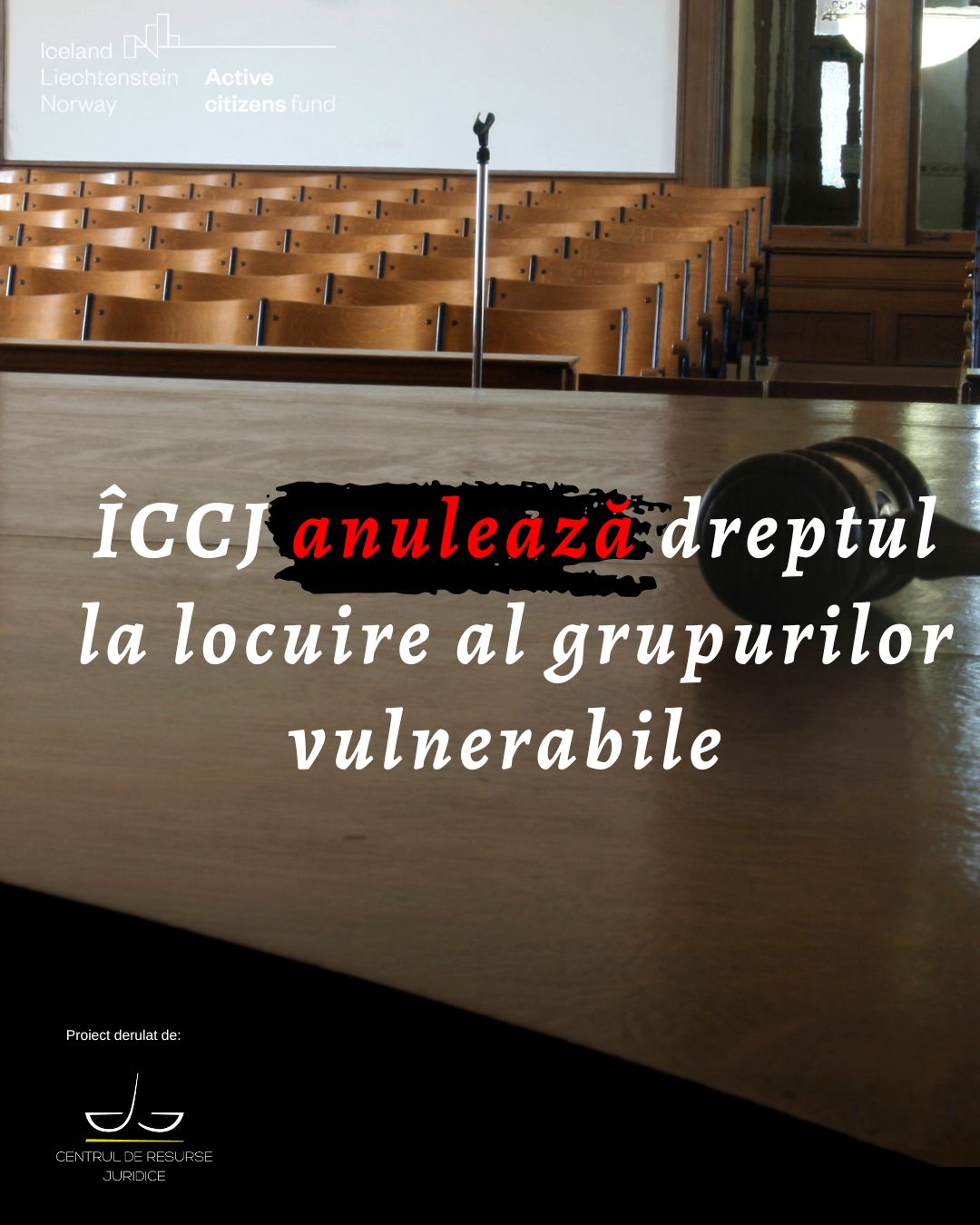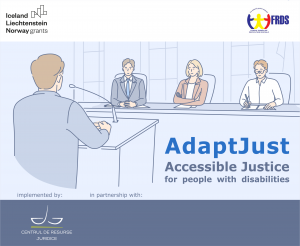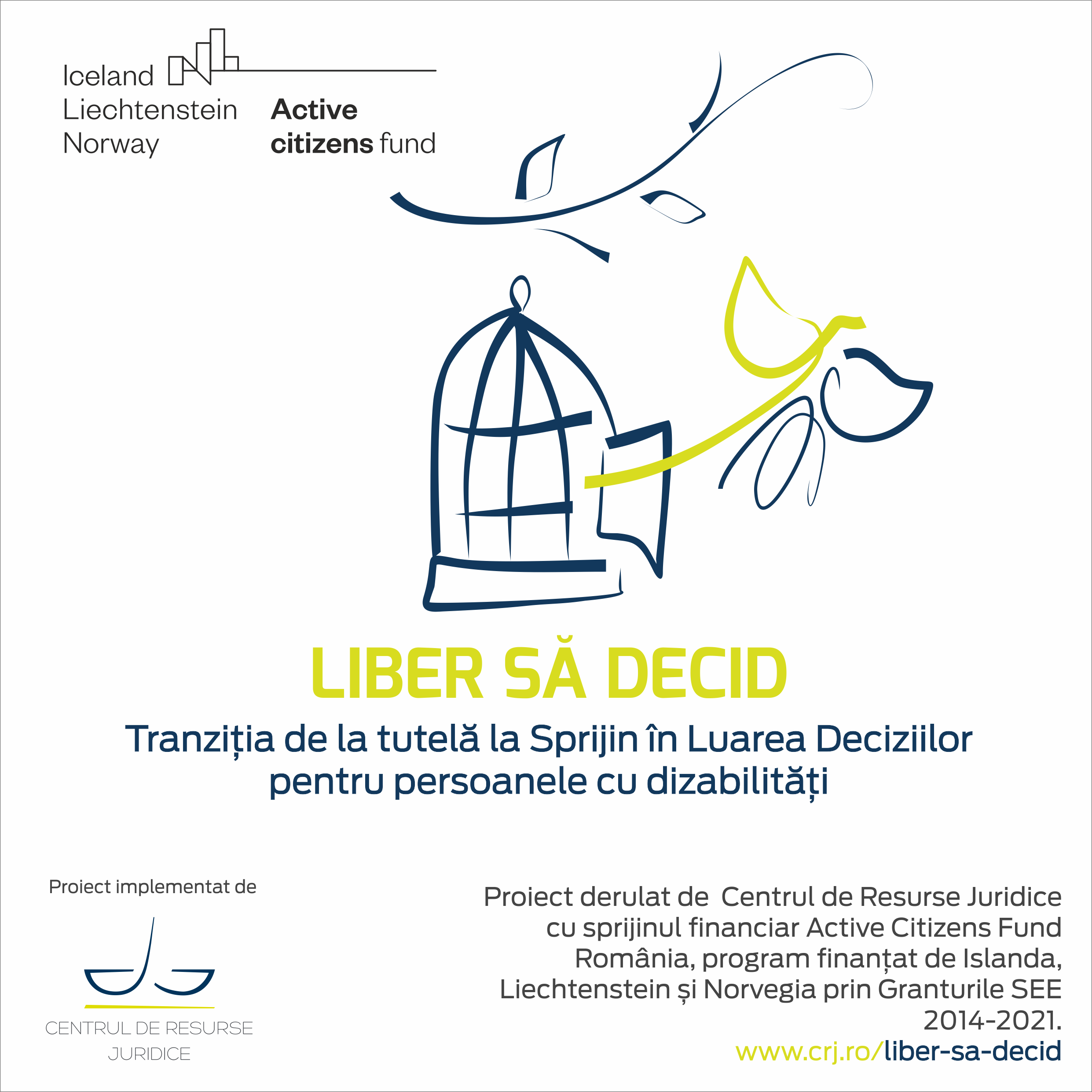The HCCJ issued a decision that will create an extremely dangerous precedent in terms of respecting the rights to housing, private life and non-discrimination of vulnerable groups, rights guaranteed by both national and international legislation.
The decision bears no. 1888/04.04.2023 and has not yet been drafted.
In 2017, the Municipality of Alba Iulia evicted 200 members of the Romani ethnic group, including children, women, the elderly and people with disabilities, from a building that was to be demolished, in an abusive and disproportionate manner, not giving them another place to live.
These issues were found by NCCD Decision no. 454 of 19.11.2018, following a complaint by the Association Partida Romilor Pro Europa. The NCCD sanctioned Alba Iulia Municipality and Alba Iulia Local Council, as the eviction of a large number of people without providing other alternatives falls under the provisions of Art. 2 para. 1 and art. 10 letter h) of Ordinance of the Government no. 137/2000:
- „In the present case, the Board of Directors does not contest the legitimacy of the respondent’s approach to evict the group of Roma, a disadvantaged group in the “Turturica” building, unsuitable for residential accommodation, but analyses the lack of an alternative that would provide suitable measures, namely social housing for the vulnerable group (200 people including children, women, elderly and persons with disabilities). In Mazari v. Italy, the European Court was asked to rule on the situation of an eviction, i.e. the failure to provide suitable alternative accommodation for a person suffering from a medical condition. The Court held that while eviction for non-payment of rent is a legitimate action, in some cases the authorities must provide alternative accommodation.”
- „The Board notes that the local authorities have failed to consider measures tailored to the needs of the vulnerable group, as they have rushed to evict them without taking into account the fact that in October temperatures are low, the time and the time allowed for eviction, thus leaving families with children, elderly and persons with disabilities homeless.”
The NCCD decision was upheld by civil sentence no. 1293 of November 25th, 2020 of the Bucharest Court of Appeal – Section IX administrative and fiscal litigation, which undoubtedly motivated the following:
- „The particular situation of ethnic minorities is such as to claim the right or facility governed by the provisions of Article 10, letter h) of O.G. no. 137/2000, i.e. to be considered and understood in a particular and characteristic way in various areas of social life, including in relation to the provision of housing space or alternatives that subsume the guarantee of minimum living conditions, in relation to the special situation in which they find themselves, i.e. vulnerable persons in terms of their unequal position in relation to the majority of citizens due to their differences in identity from the majority, i.e. facing a behavior of rejection and social marginalization. It therefore appears to be correct that the special and different situation of ethnic minorities required different treatment, in the sense of special and effective care on the part of the local administrative authorities with regard to the vulnerable condition of the Romani ethnic group, in accordance with the legitimate right or vocation to such treatment, since different situations cannot be treated in the same way.”
- „It is correct to hold the defendant authority that in the present situation the ECHR jurisprudence from the Case of Winterstein and others v. France is applied mutatis mutandis. Applied to the present case, although in that case the Court’s analysis was based on compliance with the provisions of art. 8 of the ECHR, the legal arguments of the European court are for reasons also applicable to the present case, in order to respect the principle of equal opportunities and non-discrimination of some members of the Romani community in the context of the application of an eviction measure which, although legal, affects the standard of living and thus life safety and social integration efforts, through the lens of the manner in which the eviction is carried out, without the undertaking of alternative measures adapted to the vulnerable condition of ethnic minorities. ”
However, the High Court upheld the appeal brought by the applicants, the Local Council of the Alba Iulia Municipality and the Administrative Territorial Unit of the Alba Iulia Municipality, against the judgment of the Bucharest Court of Appeal, quashed the judgment under appeal and, on retrial, annulled Decision No 454/19.11.2018 of the National Council for Combating Discrimination.
One wonders how the reasoning of the Court of Cassation will look like when the authorities (police, gendarmerie with dogs) intervened and people were given 18 minutes to leave the building? People went out with all the belongings they had, storing them in front of the building.
The manner in which they were evicted also violates the dignity and respect due to human beings, through overzealousness, abuse of authority and the use of degrading language such as “If you don’t come out, I’m coming in with a water hose”.
One of the components of the right to adequate housing is the protection against forced evictions, an obligation that States must comply with immediately. In General Comment no. 7, the United Nations Committee on Economic, Social and Cultural Rights has regulated the standards regarding obligations related to evacuations. Noting that, in general, evictions are incompatible with the International Covenant on Economic, Social and Cultural Rights, the Committee stated that they can be justified, as long as certain conditions are met such as:
- prior consultation of the evacuated person
- the existence of adequate and reasonable notice of the date of eviction
- the existence of a judicial way that allows obtaining a legal remedy either to prevent eviction or to grant compensation.
These conditions apply equally to situations where evacuations are undertaken by the state or by private persons. The evictions must not lead to individuals being placed in more vulnerable situations, to the violation of other rights or to homelessness. They must not take place in adverse weather conditions or during the night. The State shall take all reasonable measures, using available resources, to ensure alternative accommodation.
In this case, the eviction was carried out in October, in low temperatures, and the people evicted were deprived of their right to housing until they found alternative accommodation on their own.
We reiterate the seriousness and dangerousness of such a precedent which grossly denies the vulnerability of certain categories of disadvantaged people and gives a green light to administrative territorial units to act in an abusive manner towards citizens whom the latter consider undesirable.
Source: www.scj.ro/1094/Detalii-dosar?customQuery%5B0%5D.Key=id&customQuery%5B0%5D.Value=5700000000026960






